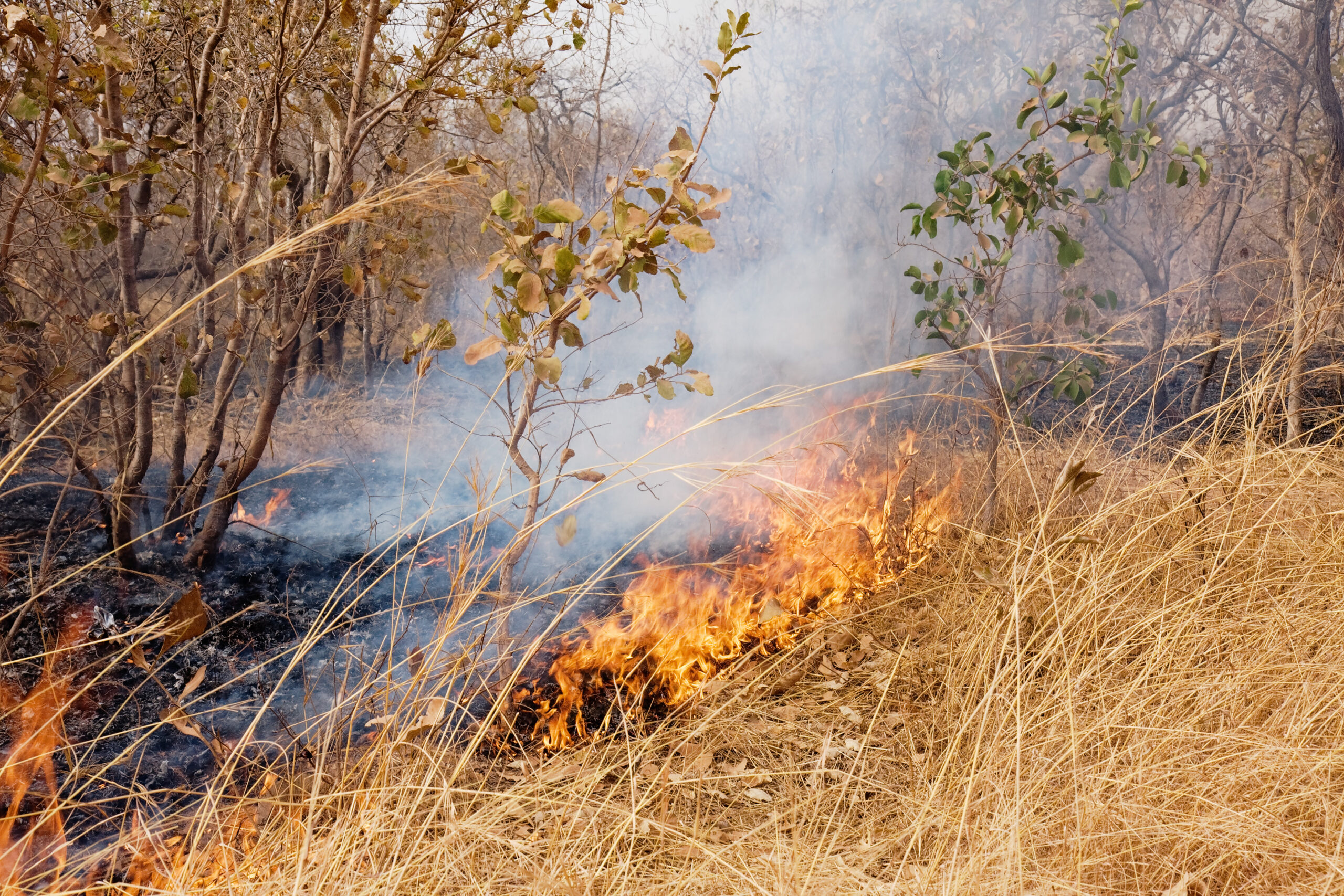Gambiaj.com – (BANJUL, The Gambia) – Senior government officials and partners on Monday, gathered to validate the National Wildlife Fire Management Strategic Document, calling for the full implementation of domestic frameworks to address the rising threat of wildfires, particularly in rural farming communities. This urgent initiative comes in response to 2,063 fire alerts recorded between June 2021 and June 2024, highlighting the government’s commitment to combating what is described as an escalating issue by the Permanent Secretary of the Ministry of Environment.
Officials from the EBA Large-Scale Ecosystem-Based Adaptation Project in The Gambia, senior Ministry of Environment personnel, and international partners emphasized the need for immediate and sustainable actions to mitigate wildfires. The review and validation of both the draft National Fire Management Strategy and the National Commitment to Wildlife Management are set to be completed on Tuesday, marking a significant step towards integrated and participatory wildlife ecosystem and livelihood prosperity in the Gambia.
During the opening session, Ibrahima Jawara, Permanent Secretary of the Ministry of Environment, underscored the critical need for wildlife conservation. “Climate change and human activities are the primary drivers of the increasing frequency and intensity of wildfires,” he noted. “As temperatures rise and rainfall patterns become more erratic, the conditions for wildfires become more favorable. This is a crucial step towards safeguarding our natural heritage and the well-being of our citizens.”
Jawara highlighted the alarming increase in wildfires in recent years, particularly in the Central River region, where large forest areas have been devastated, destroying valuable habitats and displacing wildlife. Similarly, the North Bank region has faced recurrent wildfires, severely impacting agricultural lands and threatening food security and livelihoods. “It is imperative that our strategy integrates climate adaptation measures to enhance our resilience,” he added.

Dr. Malanding Jaiteh, the Ecosystem-based Adaptation Project manager, urged stakeholders to thoroughly review and ensure the full implementation of the strategy once validated. He emphasized the importance of effective forest restoration, noting, “The burning is happening outside designated forest parks and community forests, often in old agricultural fields. Fires don’t stop. It is essential to come up with a national strategy to preserve our natural cover. We’ve been fortunate to partner with World Agroforestry and ECLAF for their technical support.”
Anifa Kassam, UNEP Tax Manager, highlighted the importance of local context in the strategy’s development. “You understand the country better and the context much better. What we agree on in terms of implementing this document through the validation process is extremely important,” she said.
Dr. Mohamed Jaiteh, Director of the Department of Forestry at the Ministry of Environment, echoed the call for full implementation of the National Wildfire Management Strategy. He stressed the need for community involvement in forest management, noting that forest fires are a significant challenge. “If we can all work together to address this problem, it will help consolidate our gains and allow us to expand to other areas,” he stated.
Common activities such as welding, grinding, faulty machinery, and discarded cigarettes often cause accidental ignition and the spread of wildfires. While the Gambia registers fewer wildfire incidents compared to other countries, recent reports of an increase, particularly in the past two years, have necessitated urgent action. The national framework being validated aims to curb wildfires in the country effectively.
As stakeholders work to finalize the National Wildlife Fire Management Strategy, the hope is that its implementation will significantly reduce the incidence and impact of wildfires, protecting both the natural environment and the livelihoods of those who depend on it.










